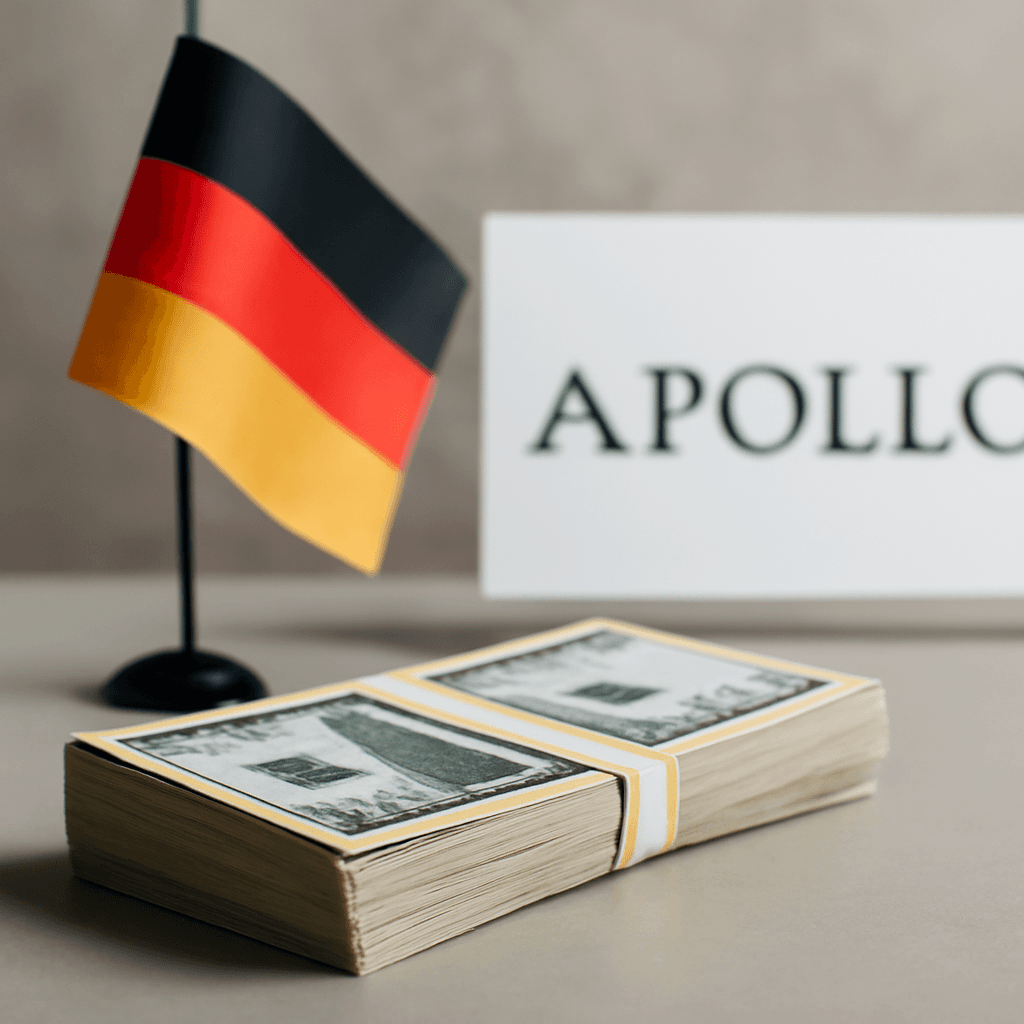Apollo Sees $100 Billion Opportunity in Germany
At a recent major private markets event, Apollo Global Management signaled a striking pivot toward Europe, with particular emphasis on Germany. President Jim Zelter revealed plans to deploy $100 billion in Germany over the next decade. This bold move reflects a growing trend as private capital increasingly favors Europe amid uncertainties in the U.S.
"Many investors in Europe recognize the opportunity, and those in the U.S. are also turning their attention to Europe," Zelter noted during his keynote interview. He highlighted not only private equity but also credit markets as fertile ground for investment growth across the continent.
Focus Areas: Real Estate, Industry, and Strategic Sectors
Zelter emphasized significant prospects in investment-grade commercial and residential real estate, drawing attention to housing shortages in Spain and the U.K. Regarding Germany, he underscored the nation's pivotal role in catalyzing Europe's renewed focus on financing critical industries including defense and manufacturing.
The German government's recent call for private capital to complement public funds in infrastructure development adds momentum to these investment plans. Notably, the parliamentary approval of a $500 billion fund to support defense, infrastructure, and climate projects reflects a strategic reshaping of the economic landscape.
Political Stability and Diplomatic Engagement Bolster Confidence
Germany’s political clarity improved with the confirmation of Friedrich Merz as Chancellor in May. Merz, renowned for his pro-business stance and experience with global firms, has swiftly sought to strengthen international relations, including engaging with U.S. leadership to enhance cooperation, especially concerning support for Ukraine.
European Markets Outpace U.S. Amid Shifting Sentiment
Joana Rocha Scaff, leading European private equity at Neuberger Berman, stated that investors initially leaned heavily toward the U.S., anticipating deregulation and growth. However, escalating trade tensions redirected their focus towards Europe. According to Scaff, Europe now accounts for roughly 65% of direct investment activity this year, a substantial increase from the usual 20-30% range globally.
Investment efforts span from developed European markets to sectors like energy security, defense, digitalization, and industrial assets. This enthusiasm is mirrored in public markets, with Germany’s DAX index surging by about 22% year-to-date compared to a modest increase of 1% for the Dow Jones Industrial Average.
Moreover, Europe's Aerospace and Defense sector has soared nearly 50%, while select U.S. tech giants have experienced a slight downturn, reflecting shifting investor priorities.
Retail Investors and New Investment Vehicles
For individual investors keen to capitalize on European growth, major firms have identified promising stocks including defense companies Rheinmetall and Babcock International, IT giants SAP and Dassault Systems, and infrastructure players such as Alstom and Heidelberg Materials.
Adding to accessibility, new exchange-traded funds (ETFs) now offer ways to tap into private credit returns. For instance, a recent collaboration between State Street and Apollo launched the SPDR SSGA Apollo IG Public & Private Credit ETF (PRIV), designed to allocate at least 80% of its holdings to investment-grade public and private debt instruments. Nevertheless, experts caution that private markets can be complex and carry significant risks.
Conclusion: A New Chapter for European Investment
The shift of private capital from U.S. uncertainties toward Europe's promising landscape marks a momentous change in global investment strategies. With robust political backing, sizable financial commitments, and promising sectoral growth, Europe—led by Germany—is set to emerge as a hotspot for private equity and credit investors worldwide.














